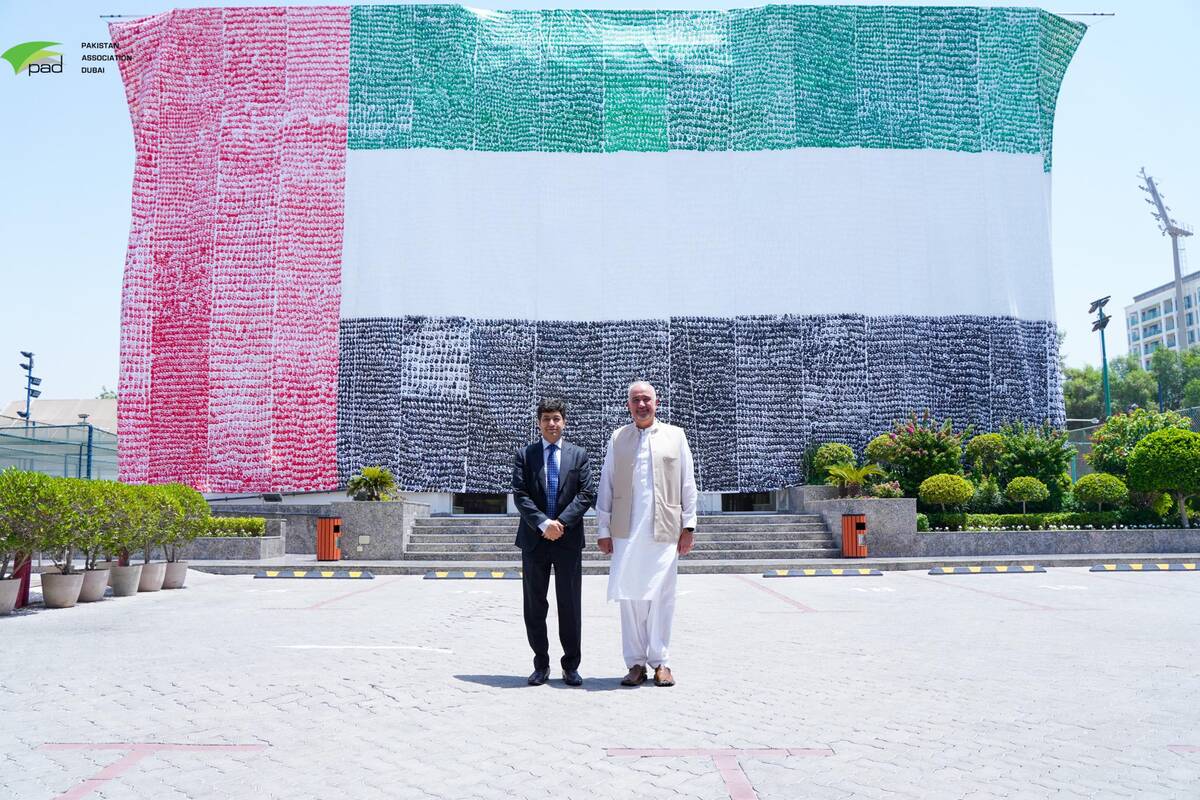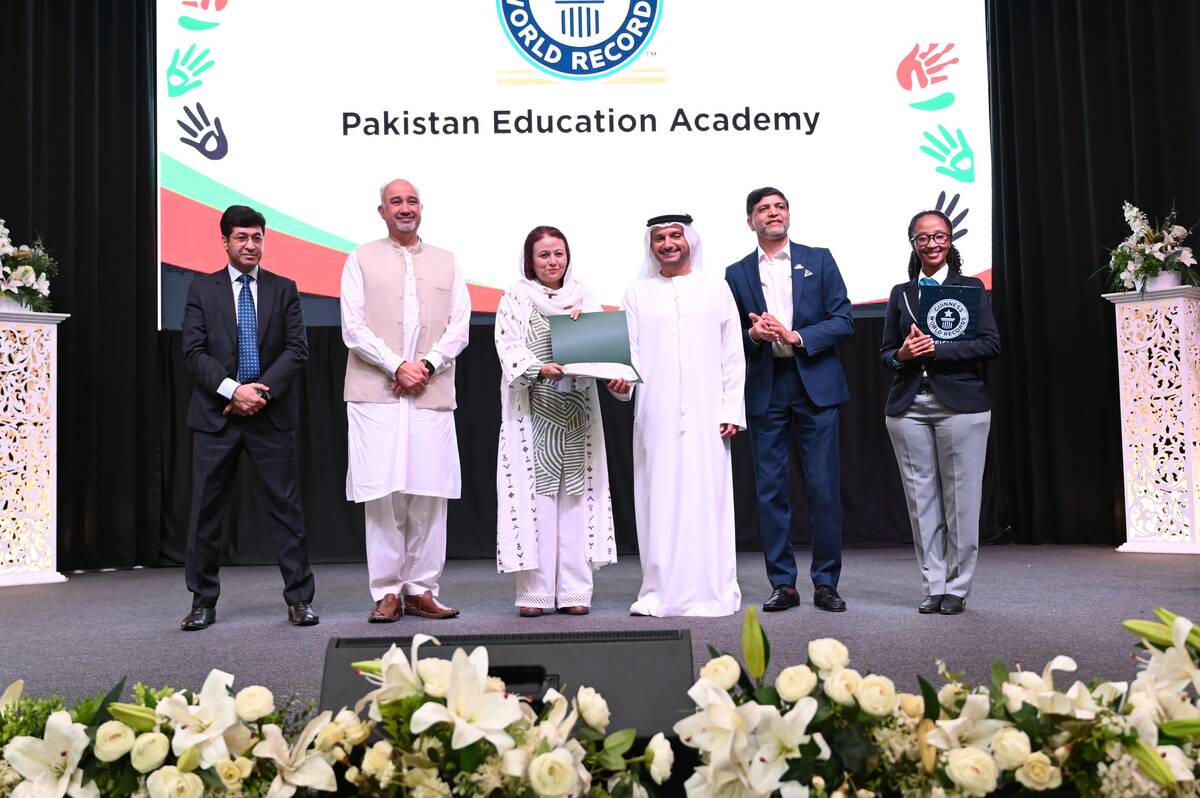ISLAMABAD: Leaked audio recordings, two in a single day, have put the spotlight on political intrigues at the Prime Minister’s Office during the term of now ousted premier Imran Khan, with one raising questions about his involvement in political horse-trading and the other about the truth to his allegations that he was removed from office in a foreign conspiracy.
Last month, a slew of audio recordings of conversations between key government figures were leaked online from the PM’s Office. The first set of leaks included discussions between Prime Minister Shehbaz Sharif and members of his cabinet, while the last three leaks have purportedly featured Khan’s discussions with top aides while he was in office.
The first Khan leak last week revolved around a conversation between Khan when he was PM and his then principal secretary Azam Khan about a diplomatic cipher that was at the center of Khan’s allegations that his ouster was part of a regime change conspiracy hatched by the United States. Washington denies this.
In Friday’s first leak, a voice believed to be Khan’s is heard discussing the possibility of “buying” five legislators. Arab News could not independently verify the timing of the recording but it was widely reported that it was a conversation in the days leading up to the no-confidence vote in which Khan was removed from office.
Before Khan, no prime minister in Pakistan’s history was ever ousted through a no-confidence motion.
Several lawmakers from Khan’s then ruling Pakistan Tehreek-e-Insaf party withdrew their support for him ahead of the no-confidence vote, unleashing accusations from Khan and his supporters that their loyalties had been ‘bought’ by opponents. Finally, opposition parties were able to secure 174 votes in the 342-member house in support of the no-confidence motion, making it a majority vote against Khan.
“You have a big misunderstanding that now the numbers game is over … don’t think that it is over,” a voice believed to be Khan’s is heard saying in the latest leak. It is unclear who he was addressing.
“48 hours is a long long time, there are major things happening, I am myself doing many moves that I can’t make public,” he added.
Then in what is believed to be a reference to horse-trading, Khan said:
“Five [lawmakers] I am buying myself ... I have five … send the message that those five, they are very important, and tell him [unknown] that if he can secure those five, if those are turned to ten, then the game is in our hands.”
Khan is heard advising his audience members not to worry “if this is right or wrong” since the public, he said, was alarmed and wanted us [Khan] to “at any cost win this.”
“Any tactic we have [use it],” he said. “If someone wins over even one [legislator] it will make a difference.”
In the second audio clip released on Friday, a voice believed to be Khan’s can be heard telling his aides Asad Umar, then planning minister, and Shireen Mazari, who held the human rights portfolio, to forcefully push the narrative of a “foreign conspiracy” to oust his government.
“What we are doing with the letter now, we should have done it a bit earlier, [ideally] a week or 10 days earlier,” a voice believed to be Umar’s can be heard saying in the clip.
In April, the Khan government handed an official protest to the US embassy over what it called Washington's interference in the country's affairs, referring to a diplomatic note from a Pakistani diplomat based on his meetings with US officials that Khan has said was evidence of a foreign conspiracy to oust him from power.
Just weeks later, Khan was removed from office in a parliamentary vote of no-confidence, which he blamed, and continues to blame, on a conspiracy hatched by the United States with Khan’s rivals in Pakistan, including current PM Sharif. Both deny the charge but Khan has held rallies across the country since, sticking to the theory of a foreign conspiracy and challenging the mandate of the Sharif government.
“The impact of this letter [cipher] has been huge, I mean what we are thinking about it, its impact has been felt around the world,” Khan is purportedly heard saying.
Mazari interrupts, saying even the Chinese had issued a statement “condemning the US for interfering in our internal affairs.”
“Our strategy will be…, see the public is already with us,” Khan allegedly tells the audience members. “Now, on the basis of the public’s pressure, we want that the height of the pressure to be such that on Sunday [day of vote of no-confidence], whosoever goes to vote in the assembly should be branded for life and you have to brand them as Mir Jafar and Mir Sadiq.”
The reference was to two leaders in the 18th century who have become symbols of treachery in subcontinental history for siding with the British as they colonized the region. Repeatedly narrating their stories during rallies in the last few months, Khan has reminded his supporters that Mir Jaffar had joined hands with the British despite being the commander-in-chief of a governor of the Mughal emperor while Mir Sadiq betrayed Tipu Sultan, the ruler of the Kingdom of Mysore. The metaphors have been widely believed to be a veiled reference to what Khan believes is a betrayal of his government by the military, which did not block his ouster.
In Friday’s leak, Khan then allegedly tells his aides to “spoon-feed people [the foreign conspiracy narrative] as their minds are currently fertile grounds that you can feed them now.”
Last week, Pakistani Prime Minister Shehbaz Sharif ordered an investigation into the leaked audio conversations and called the affair a “major lapse.” He set up a committee to investigate the leaks and called for a review of cybersecurity at the prime minister's and other government office.
On Friday, Interior Minister Rana Sanaullah chaired the first meeting of the high-powered committee on the cyber and electronic security of government offices.
A statement from Sanaullah's office said the minister had directed the committee to complete its task within two weeks.
“The committee will review the investigation into the cyber security breach at the Prime Minister's House. The committee will also review the existing cyber security protocols for the Prime Minister's Office and House,” the statement said, adding that the committee would formulate an action plan to make cyber security protocols foolproof for the future.
“The committee will also formulate recommendations regarding ensuring electronic security of all government offices,” statement added.
A senior leader of Khan’s Pakistan Tehreek-e-Insaf (PTI) party, Chaudhry Fawad Hussain, reacted to the first leaked audio on Friday as a "joining together of voices."
"People know where these audios are being made and how they are being made, now the decision will be made at Haqiqi Freedom march," he said, referring to a planned long march by the PTI party. He has previously said the leaks were a way for the government of PM Sharif to distract the public from its corruption.

















